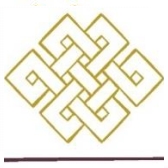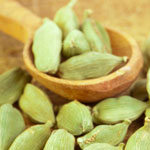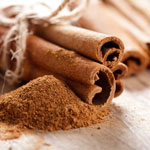.jpg)
Response to the IAF Questionnaire regarding THMPD
02.03.2010 | We expressly welcome any initiative which is likely to identify gaps which undoubtedly exist in the system of traditional registration of herbal medicinal products on the basis of Directive 2001/83/EC (as amended). However, we are afraid that the initiative proposed by you may miss the practical reality and might possibly produce a counter-effect among some protagonists.
Dear Ayurveda Community
We expressly welcome any initiative which is likely to identify gaps which undoubtedly exist in the system of traditional registration of herbal medicinal products on the basis of Directive 2001/83/EC (as amended). However, we are afraid that the initiative proposed by you may miss the practical reality and might possibly produce a counter-effect among some protagonists.
To begin with, let us look at the provisions of the THMP directive in context: The necessity of harmonising the markets was based on the fact that products in different EU member states were and still are marketed under different status. The preparations from the Ayurveda range, even if used as medicines for all practical purposes, were usually declared to be food supplements. Letting aside the question of registration, this road will be blocked from now on because Health Claims now have to be approved through the EFSA route. As it is, the preconditions in this case are much stricter than those for THMP because proof of efficacy in healthy persons (!) is required for food supplements. By definition, food supplements are not designed for treating patients with a disease.
These rules are not primarily in connection with the origin of the substances. They apply equally to European and Indian preparations.
To avoid hardship in this context, the THMP directive was established – again without looking at the origin of a preparation.
Of course, it is correct to reveal the deficiencies of workmanship of the directive and work towards the goal of having a number of natural substances like certain minerals or honey, propolis, butter, etc., which have been demonstrated to be harmless toxicologically, included in the directive. At this point, your initiative gives the impression that these substances were excluded in order to ban Ayurvedic preparations systematically from the market. This is not the case according to our experience and after talks in Brussels and with the national registration authorities. If we all work towards the same goal we can make the EU Parliament and the EU Commission aware of the fact that the THMP package must be unravelled and amended. This will not work, however, if indirectly we suggest that the affected circles proceeded with malicious intent.
This brings us to the core of the question of exaggerated safety requirements. This is where we absolutely agree: Whatever we find is done on different levels within the EU is totally exaggerated and a danger to many small and medium-size companies. This, however, is not the fault of the THMP directive: The demand for more consumer safety and the adoption of the precautionary principle was fixed as early as in the Amsterdam EU treaties and is now applied systematically. Now, we should not seriously attempt to question the Lisbon Treaty so laboriously fought for so long – this will not be seconded by anyone.
According to our experience which is that whenever you start talking about safety, this is the inevitable response: Quality and safety are not open to negotiation.
This applies to European pharmaceutical plants as much as to Indian ones – regrettably, in the light of negative experience with the quality of the quality of Asian (notably Chinese) drugs, all Ayurvedic herbal imports are subject to particularly critical observation. Basically, however, we do not see this as a problem but as a challenge. The quality requirements for registration are defined clearly and can be met, mainly also in respect of contamination. Nobody will be given a free ticket and all attempts at softening the quality criteria will be blocked, to be sure. In our opinion, such requests are also dangerous because they will only give the press that is eager for scandals ammunition unnecessarily when once again interested circles publish laboratory results.
However, we also have problems with a few other trends that could be derived from the questionnaire:
* The note that only defined forms and strengths can be registered is not understandable from our point of view. The approval or registration of a medicinal preparation is always case-related and preparation-specific. The note sounds as if strengths and forms of application could be changed for registration – this has never been the case. We understand that this is to express that there is a grater measure of flexibility in the case of food supplements – but this will soon cease to be the case. Even today, the EFSA requirements on efficacy are higher than those of THMP, and they are working on putting the quality criteria on an equal footing. So flexibility here will soon be a thing of the past.
* You gain the impression that the EU is drafting and adopting directives in camera without consulting anyone. The truth, however, is that all draft papers are thrown open for discussion, and interested circles have an opportunity of voicing their opinion. It is a matter of surprise, then, that the number of comments regarding the THMP directive was fairly small. In retrospect, you cannot blame the EU for not having consulted interested circles – this would have been an obligation of all of us. Any suggestion in this respect is counterproductive because the EU will not find it difficult to discredit them for understandable reasons.
* Questions concerning the safety of a product are dangerous. What will you do if anyone answered that they considered the products to be "unsafe"? If this happened, the rules are that such products could not be traded at all! The precondition of safety applies to food supplements as much as to THMP.
* Questions concerning the quality of the products are even more dangerous: Whereas safety is still somehow a subjective matter, quality requirements are standardised. Hence, you can reply in the affirmative only if you violate these quality requirements, in which case the product would not be marketable. As it is, we cannot see any connection with Ayurveda here.
* Question 23 is likely to seriously offend the regulators. As far as approval is concerned, basically, no difference is made whether a preparation comes from the European or Ayurvedic tradition. The authorities cannot treat any medicinal preparation differently only because it comes from Europe or from India.
* Question 24 misses the current regulations: - Registration is possible even if 15 years within the EU cannot be demonstrated.
- Besides, it is simply wrong that only monopreparations can be registered and combinations are excluded. The question of the application pathways has nothing in common with Ayurveda – is applies generally to all traditional registrations.
- Likewise, a requirement on all registrations is that the preparations must not be subject to prescription – again, no connection with Ayurveda can be seen. If the impression was created that Ayurvedic suppliers wanted to place in the OTC market preparations which are only available on prescription, this would just be what the press is waiting for. By the way, prescribers are still free to prescribe ingredients that can only be obtained on prescription and are part of a formulation.
- There is no indication supporting the claim that traditional preparations from the area of Ayurveda were generally disadvantaged in Europe. On the contrary: So far, not a single attempt at filing an application has been made. A claim like this should be based on facts, and facts would have to be established, at first. EUAA has for long advocated that applications should be attempted, to see what happens.
- Definitely wrong is the claim the THMP directive had been established in order to keep extra-European traditions out. This would mean laying ourselves ostensibly open to attack and, in the final analysis, a claim like this sows discord. This would be slamming doors in the face of the EU (!) that opened these doors to us.
In summary, we believe that the questionnaire as it is now is not serving our purpose.
Let me add a word on the rules governing approval: Nobody in the EU will prevent an Ayurvedic manufacturer who wants to market another indication or even place a preparation which can only be obtained on prescription in the market from choosing one of the other pathways for obtaining approval (e.g., bibliographic approval/mixed applications). The preconditions in this case are incomparably more difficult and also more expensive than for the traditional registration – but this is the same for preparations of any origin. This, exactly, should make us understand that in spite of the weaknesses of the THMP directive, in fact, it went a long way towards making things easier.
We should not make one mistake: We should not compare the old, utterly unregulated marketing of food supplements before the time of the Health Claim Regulation with the rules governing the registration of traditional medical products. This comparison is totally misleading. If you need a comparison, then with the new rules for food supplements or the previous rules of drug approval -- and the picture you get will be totally different.
We are in agreement that the creation of a new database with economic figures would be extremely valuable for the debates on EU level. As already expressed before, it is also reasonable to make the EU aware of the weaknesses of the THMP directive. However, we should be extremely careful not to exploit any clichés which are demonstrably wrong and unsubstantiated. So our appeal is addressed to the Ayurvedic manufacturers: Try and attempt registration on the basis of the rules applicable in the EU. This is the only way of discussing experience at eye level. We are convinced that a veritable number of Ayurvedic preparations would be promising candidates for traditional registration.
Sincerely yours,
Dr Matthias Schmidt – Medicines Regulations Director, EUAA
www.euroayurveda.com

.jpg)


.png)
.jpg)



